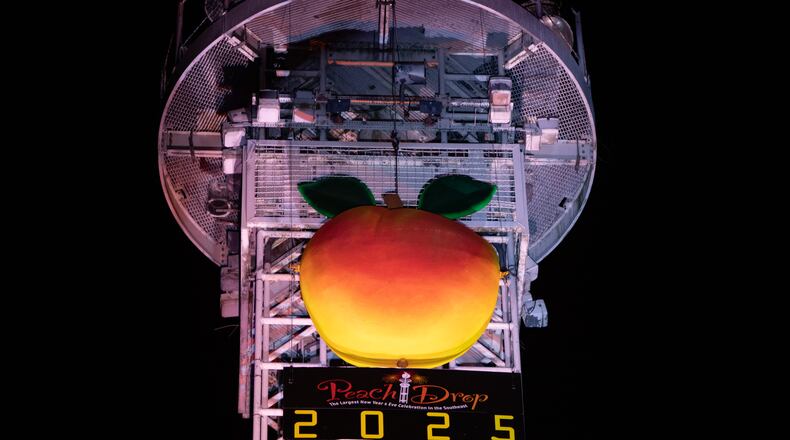As 2025 ticked into being, we are left to consider the fact that Y2K is now 25 years past.
Just think of that, or at least those of you old enough to remember the collective anxiety and excitement when the Big Odometer flipped from 1999 to 2000. We were alive to experience the turning of a new millennium. It was a seismic event. The end of old days, the start of new.
And now a quarter of a century has blown by.
Much of the 21st century’s first quarter was rough: 9/11, two wars now seen as misguided, Hurricane Katrina, school shootings, the Great Recession, a pandemic and a political environment as toxic as we’ve seen in generations.
Those hoping for a cosmic reset were bitterly disappointed when a twisted loser drove a truck through a crowd tiding in the new year in New Orleans. At least 14 people were killed and the nation, once again, shakes its head wondering, “Why?”
Some of the events I’ve mentioned seem both long ago and just the other day because of how our minds process the passing of the hours, days and years.
True, the ticks of the clock are always the same. But new and unusual occurrences, as well as major and traumatic events, are frozen in our brains to be replayed almost as new. Meanwhile, mundane, everyday living slogs by and is relegated to the haze of memory.
The fast — or slow — passing of our moments becomes surreal.
Credit: TNS
Credit: TNS
Recently, I watched “The Godfather” (it’s a Christmas flick). The movie opens in the year 1945 — 27 years prior to the movie’s 1972 release. It struck me that life changed drastically during that time span, from culture to clothes to cars to the advent of TV.
In 1945, Americans were listening to Frank Sinatra and celebrating V-E Day. In 1972, Alice Cooper’s “School’s Out” was a monster hit and an unpopular war brought crowds to the streets.
If you view the 27 years that have passed from 1998 to today, life’s changes don’t seem as monumental. Then again, if you consider the advent of iPhones and social media and continued human detachment from flesh-and-blood interactions, then maybe the change is just as great.
I’ve caught myself saying “turn of the century” and realizing I was not referring to the time of horse and buggies, Victrolas and mustachioed men in grainy black and white photos. Although at the turn of this century, most of us were listening to our music on CDs and still snapping photos with cameras and then driving to a Wolf Camera kiosk to get our film developed. Things we now consider nostalgia.
It’s enough to get you pondering, “Where did the time go?”
It’s a phenomena that some events seem not that long ago while others seem so last century. Remember, Einstein once referred to time as an “illusion,” that its passage depends on one’s perspective or frame of reference.
Studies show time — or one’s sense of it — passes more quickly the older you get. When you’re young, each experience is vivid and new, something that is savored. As you grow older, life can slide by on autopilot because our brains have changed.
Adrian Bejan, a Duke University mechanical engineering professor, has spent many of his hours considering time. He writes: “Physical time is not mind time. The time that you perceive is not the same as the time perceived by another. Why? Because the young mind receives more images during one day than the same mind in old age.”
To put it differently: A young brain is a sponge. An older brain is an already wet sponge.
Time is our most valuable resource, one we thoughtlessly fritter away.
For instance, I’ll wake up and grab my iPhone to check pending messages. Next thing I know, 45 minutes have slipped away on Facebook, moments of life that are gone forever.
Each year, there are sign posts along the way that reveal life is drifting into your rearview mirror.
Every Sunday night I realize before going to bed that garbage gets picked up in the morning. As I drag the containers out, a déjà vu sinks in, “Wow! Another week is gone.”
Sign post, swoosh.
Credit: Hynes family
Credit: Hynes family
Almost every year since moving to Atlanta in 1990, my wife, Julie, and I have attended a Christmas party hosted by our friends Joe Hynes and Mary Anne Mitchell. Joe, who owned every room he occupied, was big on music, food, family, friends and telling circuitous yarns punctuated by eye-rolling jokes.
Most every year, we trudge up their long driveway and are greeted by strings of old-timey incandescent Christmas lights shining through the adjoining woods. Each time, we think, “Man, another year has flown by!”
It always seems like the last Christmas party was just months ago. Not the previous December.
A few years ago, Joe was stricken with ALS, which robs your motor functions and leaves you locked into an increasingly immobile state. A year ago, Joe was “speaking” through a voice-modulated computer app, one where his eyes slowly directed a cursor to the letters on the keyboard.
He was getting existential and asked us for a single word to sum up where our minds were. Or maybe to sum up life.
My word is now forgotten. But I remember his. He, or at least his computer, said “Now!”
“Now” is all you have. The past is gone and the future is not yet here.
Joe died last year. His nows! have passed. And we are left to reckon with ours.
About the Author
Keep Reading
The Latest
Featured






